In today’s fast-evolving digital landscape, cybersecurity has become one of the most crucial aspects of business operations. With cyberattacks becoming more sophisticated and frequent, organizations are seeking professionals who can safeguard their systems and data from threats. As a result, the demand for skilled cybersecurity experts is higher than ever. To stand out in this competitive field, obtaining advanced cybersecurity certifications is essential.
In this blog, we’ll explore what constitutes an advanced cybersecurity certification, the top certifications to consider, their career benefits, prerequisites, real-world applications, and the importance of renewal and continuing education.
Related Blog: How to Choose the Right Cyber Security Certification
What is an Advanced Cybersecurity Certification?
Cybersecurity certifications are credentials awarded to professionals who have demonstrated their knowledge and expertise in various aspects of cybersecurity. Advanced certifications go beyond entry-level qualifications by focusing on more specialized, in-depth knowledge and practical experience.
While entry-level certifications like CompTIA Security+ or Certified Ethical Hacker (CEH) lay the foundation for cybersecurity, advanced certifications are designed for professionals with substantial experience in the field. These certifications require a higher level of proficiency and an understanding of complex security challenges, such as network architecture, security risk management, incident response, and advanced malware detection.
Key Differences Between Advanced and Entry-Level Certifications:
- Entry-level certifications typically focus on foundational knowledge and basic skills, making them ideal for individuals starting their career in cybersecurity.
- Advanced certifications require years of hands-on experience and often have prerequisites like prior certifications or specific years of professional experience in the field.
Top Advanced Cybersecurity Certifications
Here are some of the most recognized advanced certifications that can help professionals elevate their careers in cybersecurity:
Related Blog: Top Cyber Security Certifications
Certified Information Systems Security Professional (CISSP)
- Specialization: Security management and risk management.
- Skills Validated: This certification is ideal for individuals looking to become security architects or security managers. It validates expertise in areas such as risk management, asset security, security engineering, and software development security.
- Prerequisites: A minimum of five years of work experience in at least two of the eight domains covered in the CISSP exam.
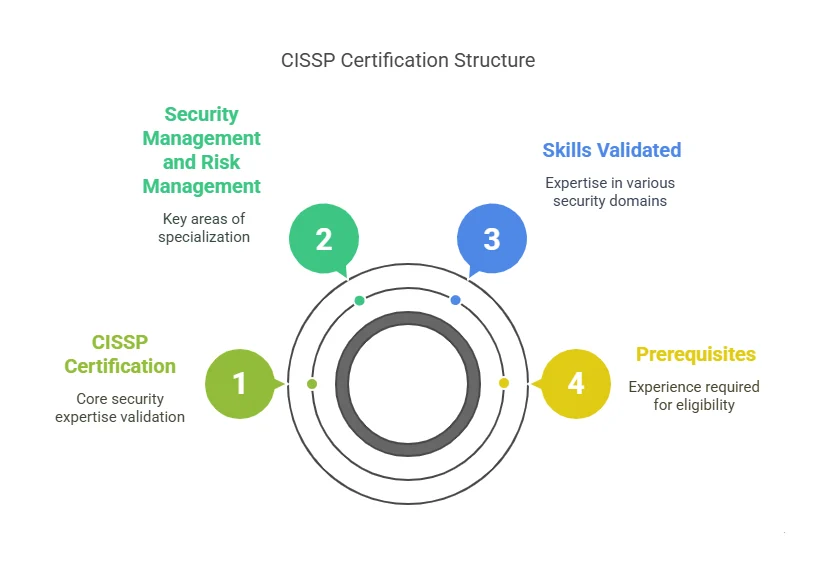
Certified Information Security Manager (CISM)
- Specialization: Security management.
- Skills Validated: CISM focuses on the management aspects of cybersecurity, including information risk management, governance, incident response, and program development. It’s particularly valuable for individuals aiming to manage teams or handle enterprise-level security functions.
- Prerequisites: At least five years of work experience in information security management.
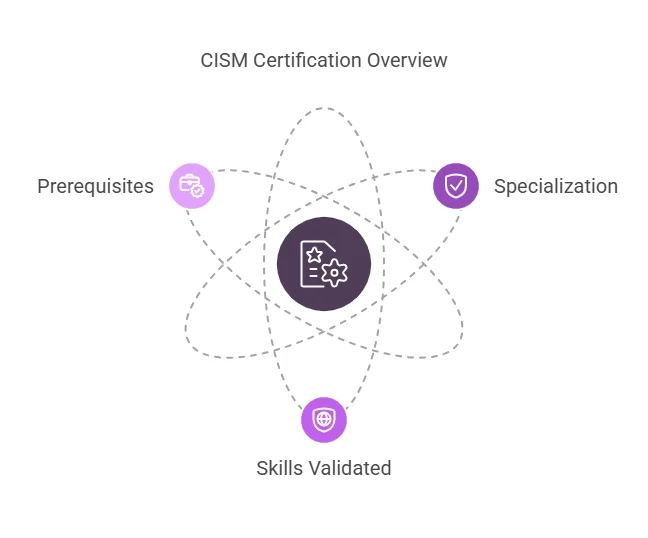
Certified Information Systems Auditor (CISA)
- Specialization: Auditing, control, and assurance.
- Skills Validated: CISA is designed for professionals who audit, control, and monitor information systems. It is ideal for those seeking roles as information systems auditors or IT auditors.
- Prerequisites: A minimum of five years of professional experience in information systems auditing.
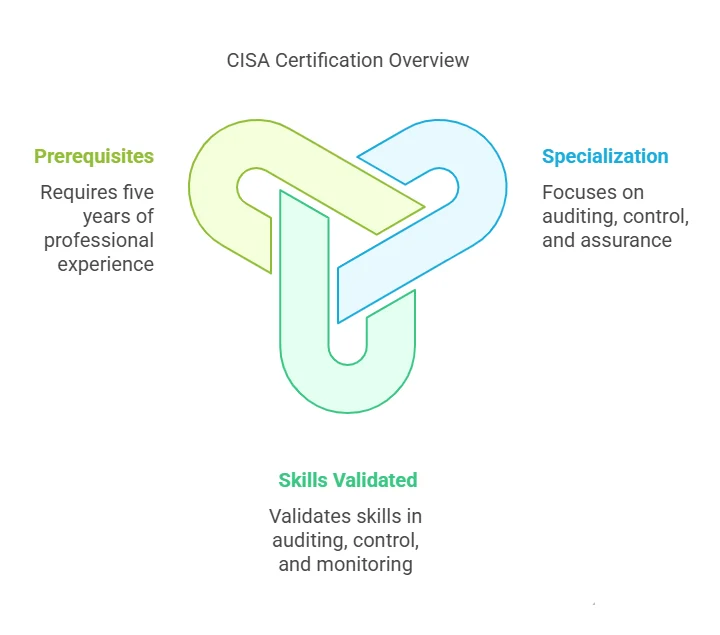
Global Information Assurance Certification (GIAC)
- Specialization: A wide range of cybersecurity topics, from incident response to penetration testing.
- Skills Validated: GIAC offers a suite of certifications catering to different areas, such as GIAC Security Essentials for general security knowledge or GIAC Penetration Tester (GPEN) for ethical hacking.
- Prerequisites: Varies by the specific GIAC certification, but many require a solid foundational understanding of cybersecurity principles.
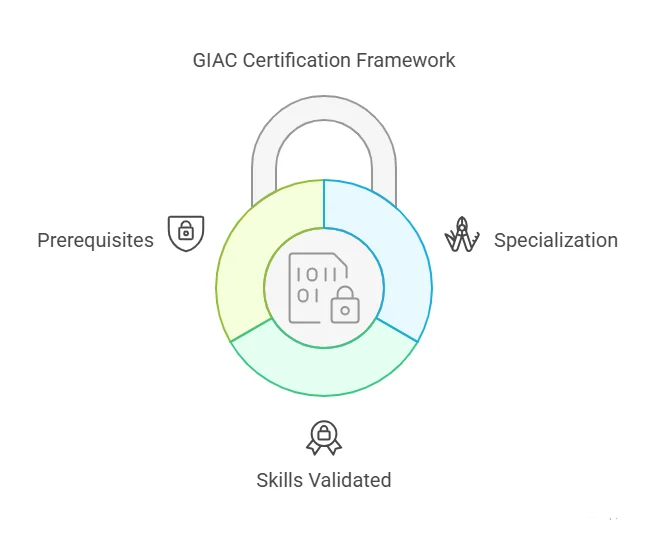
Career Benefits of Advanced Cybersecurity Certifications
Investing in advanced cybersecurity certifications can significantly enhance your career prospects. Here’s how they can benefit you:
Career Growth and Promotions
- Increased Visibility: Certification can set you apart from other candidates by demonstrating your expertise and commitment to the field.
- Leadership Opportunities: With certifications like CISM or CISSP, professionals can move into leadership roles, such as security managers or security architects.
- Job Mobility: Advanced certifications provide the flexibility to switch roles or even industries, as the need for cybersecurity expertise spans across healthcare, finance, government, and more.
Related Blog: Benefits of Cyber Security Certifications
Higher Salaries
- Advanced certifications often correlate with higher salaries. Professionals with certifications such as CISSP and CISM can expect to earn more than their non-certified counterparts, with some reports showing a significant salary increase (up to 30% higher) for certified individuals.
- Many companies offer financial incentives for obtaining high-level certifications, making it a smart investment for career advancement.
Industry Recognition
- Being certified by respected organizations like ISACA or (ISC)² increases your professional credibility and ensures that you are recognized as an expert in the cybersecurity community.
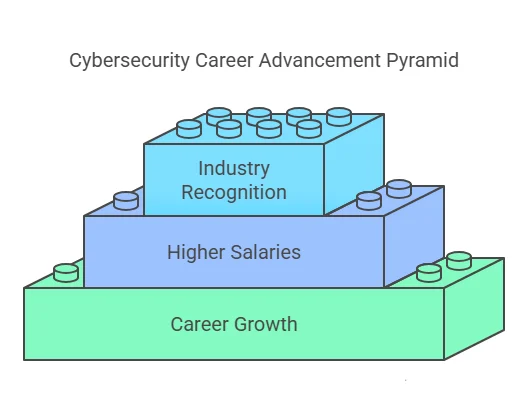
Pre-requisites for Advanced Cybersecurity Certifications
Advanced cybersecurity certifications are typically reserved for individuals with a certain level of experience. Below are some common prerequisites for these certifications:
Work Experience
- Most advanced certifications require several years of hands-on experience in cybersecurity or information security management. For instance, CISSP requires five years of work experience in two or more of its eight domains.
- For certifications like CISA, applicants must have at least five years of work experience in auditing, security, or related fields.
Basic Certifications
- Prior certifications such as CompTIA Security+ or Certified Ethical Hacker (CEH) are often recommended before pursuing advanced credentials. These certifications cover foundational concepts that are crucial for understanding the more complex topics in advanced certifications.
Formal Education
- While not always required, a degree in computer science, information security, or a related field can help fulfill the work experience requirement for some certifications.
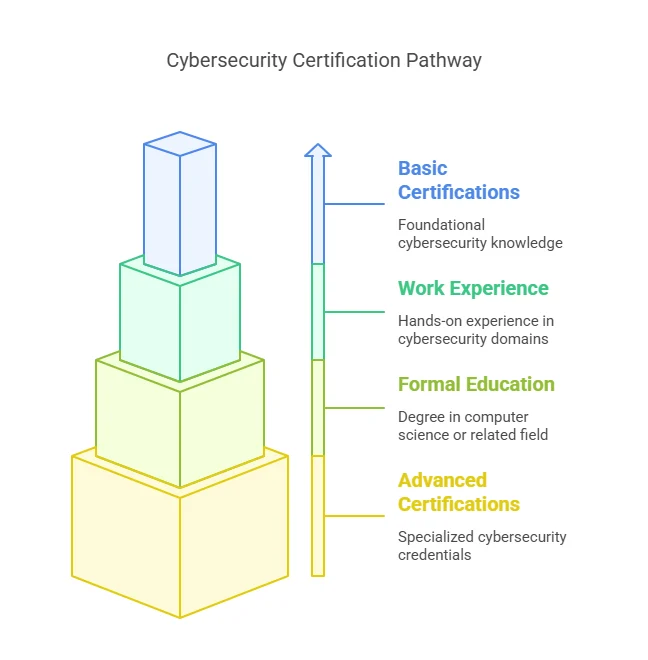
Real-World Applications of Advanced Cybersecurity Certifications
Advanced cybersecurity certifications are highly regarded in the industry and have several real-world applications. Here are some examples of how these certifications are applied in the workplace:
Security Architect
- Security architects are responsible for designing robust security infrastructures to protect an organization’s information systems. Certifications like CISSP and GIAC help professionals excel in these roles by validating their expertise in network security, security architecture, and risk management.
Incident Responder
- Incident responders act quickly to detect and mitigate cybersecurity threats and breaches. Advanced certifications in areas like incident handling and malware analysis prepare professionals for these fast-paced, critical roles.
Risk Manager
- CISM is ideal for those looking to manage risk at the organizational level. Risk managers assess vulnerabilities, identify threats, and implement policies to protect sensitive information.
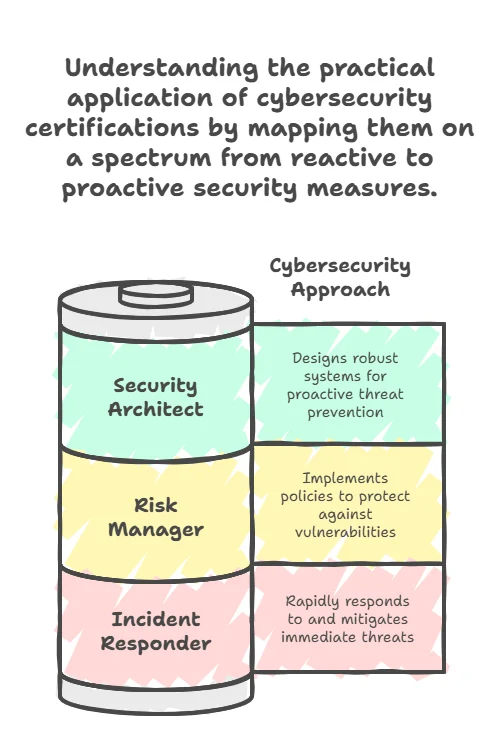
Renewal and Continuing Education Requirements
Cybersecurity is a rapidly changing field, and advanced certifications require professionals to stay up-to-date with the latest threats and technologies. As such, most advanced cybersecurity certifications have renewal or continuing education requirements.
Continuing Education Units (CEUs)
- To maintain certifications like CISSP and CISM, professionals must earn Continuing Professional Education (CPE) credits. This ensures that certified professionals keep their skills current and are aware of the latest cybersecurity trends and best practices.
Recertification
- Some certifications require professionals to pass a recertification exam or provide proof of ongoing professional development to maintain their status. For example, CISSP requires professionals to renew their certification every three years by earning 120 CPEs.
Attending Training Programs
- Participating in training sessions, conferences, or webinars can help professionals earn the necessary CPEs to maintain their certifications and stay informed about emerging cybersecurity threats.
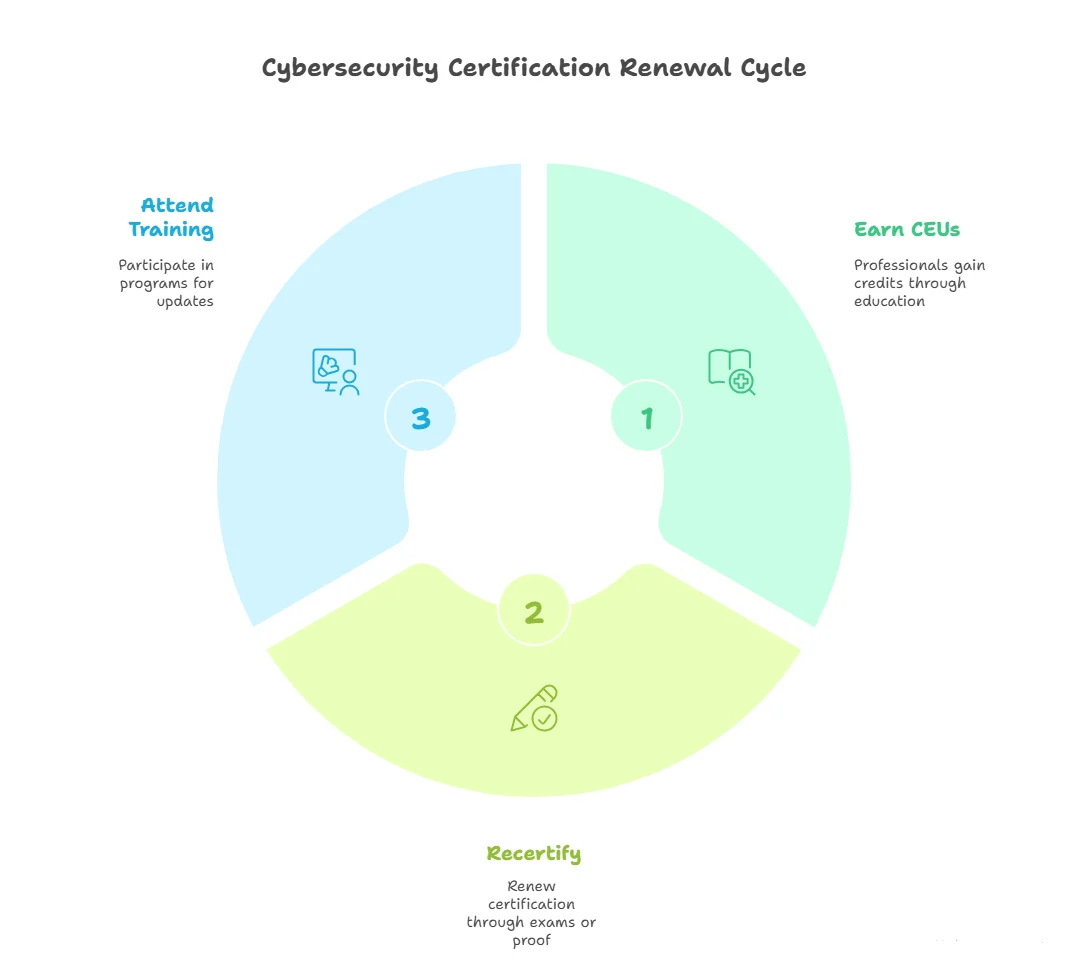
Conclusion
As cybersecurity threats continue to evolve, the demand for highly skilled professionals has never been greater. Advanced cybersecurity certifications are an excellent way to bolster your expertise, gain recognition in the industry, and accelerate your career.
Whether you’re interested in becoming a security architect, incident responder, or risk manager, certifications like CISSP, CISM, CISA, and GIAC can help you stand out and open new career opportunities. Remember, these certifications come with prerequisites such as prior certifications and hands-on experience, but the career benefits—including higher salaries, promotions, and industry recognition—are well worth the effort.
At ACSMI, we understand the importance of staying ahead in this rapidly changing industry. That’s why we offer certifications that help professionals like you stay at the forefront of cybersecurity, providing the skills and knowledge needed to excel in today’s digital landscape.
FAQs
What is the difference between an entry-level and advanced cybersecurity certification?
Advanced certifications require years of experience and a deep understanding of complex cybersecurity topics, while entry-level certifications focus on foundational knowledge.
How long does it take to earn an advanced cybersecurity certification?
The time to earn an advanced certification depends on your prior experience. It may take anywhere from several months to a few years of preparation.
Can I pursue advanced cybersecurity certifications without a degree?
While a degree can be beneficial, many advanced certifications only require professional experience in the field.
Do I need to renew my cybersecurity certifications?
Yes, most advanced certifications require ongoing education and recertification to ensure your skills remain up-to-date.
Which advanced cybersecurity certification is the most valuable?
Certifications like CISSP and CISM are widely recognized and highly valued by employers in the cybersecurity industry.

Leave a Reply